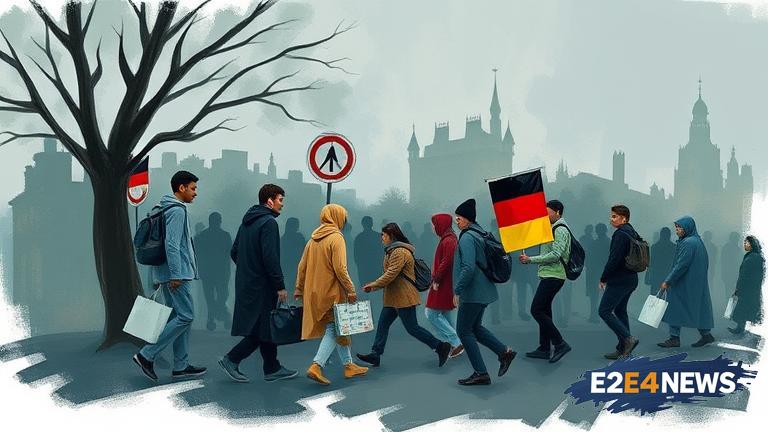Germany’s refugee integration efforts have been a major topic of discussion over the past decade. In 2015, the country saw a massive influx of refugees, with over 1 million people seeking asylum. Since then, Germany has implemented various measures to integrate these newcomers into society. One of the key challenges has been providing adequate housing and support services for refugees. To address this, the government has invested heavily in building new housing facilities and expanding existing ones. Additionally, many non-profit organizations and community groups have stepped in to provide essential services such as language classes, job training, and mental health support. Despite these efforts, many refugees still face significant barriers to integration, including language proficiency, cultural differences, and discrimination. To combat this, the government has launched initiatives aimed at promoting diversity and inclusion, such as cultural sensitivity training for public officials and anti-discrimination campaigns. Furthermore, many German cities have established welcome centers and integration offices to provide refugees with a one-stop-shop for accessing essential services and information. The education system has also played a crucial role in integrating refugee children, with many schools offering specialized language classes and cultural adaptation programs. Moreover, the government has introduced various programs to support refugee entrepreneurs, including business training and mentorship initiatives. However, despite these efforts, many refugees continue to face significant challenges in accessing the labor market. To address this, the government has introduced measures such as vocational training programs and apprenticeships. Moreover, many companies have launched initiatives to hire and train refugees, recognizing the valuable skills and perspectives they bring to the workforce. Overall, while Germany’s refugee integration efforts have made significant progress over the past decade, there is still much work to be done. Ongoing challenges include addressing the root causes of migration, providing adequate support services, and promoting diversity and inclusion. Nevertheless, the country’s commitment to integrating refugees and promoting a culture of welcome and inclusivity is a positive step towards building a more diverse and resilient society. The German government has also recognized the importance of addressing the mental health needs of refugees, who often experience trauma and stress during their migration journey. To address this, many organizations have launched mental health support services, including counseling and therapy programs. Furthermore, the government has introduced measures to support refugee women, who often face unique challenges such as gender-based violence and discrimination. In addition, many community groups have established initiatives to promote social cohesion and community engagement, such as sports programs and cultural events. Overall, Germany’s refugee integration efforts are a complex and ongoing process, requiring the collaboration and commitment of government agencies, non-profit organizations, and community groups. By working together, Germany can continue to build a more inclusive and diverse society, where refugees can thrive and contribute to the country’s economic and social development. The country’s experience in integrating refugees also has important implications for other European countries, which are facing similar challenges. By sharing best practices and lessons learned, Germany can help to promote a more coordinated and effective approach to refugee integration across the continent. In conclusion, Germany’s refugee integration efforts have made significant progress over the past decade, but ongoing challenges require continued attention and support. By promoting diversity and inclusion, addressing the root causes of migration, and providing adequate support services, Germany can build a more resilient and diverse society, where refugees can thrive and contribute to the country’s prosperity.
